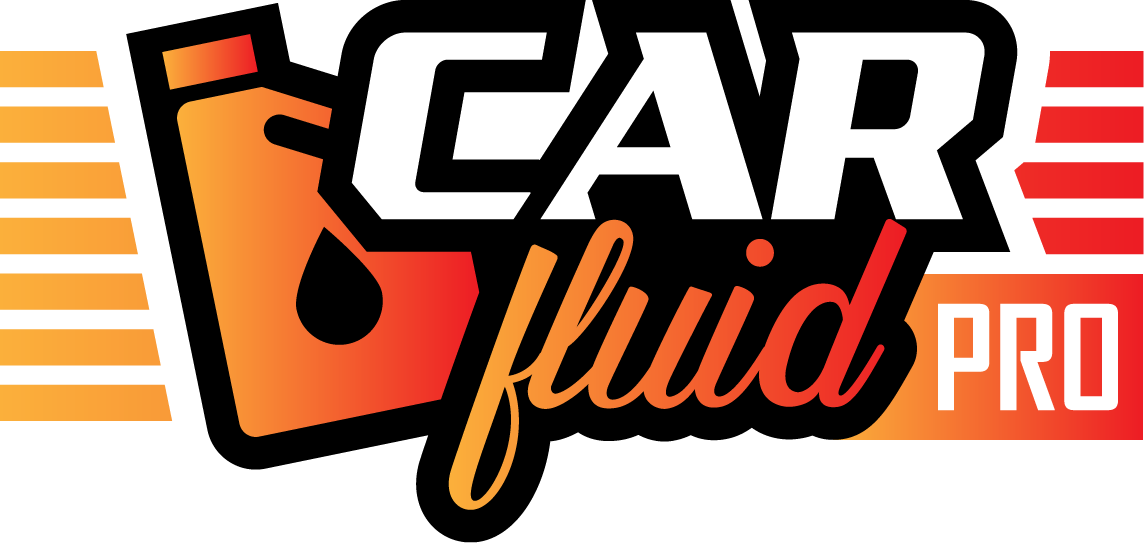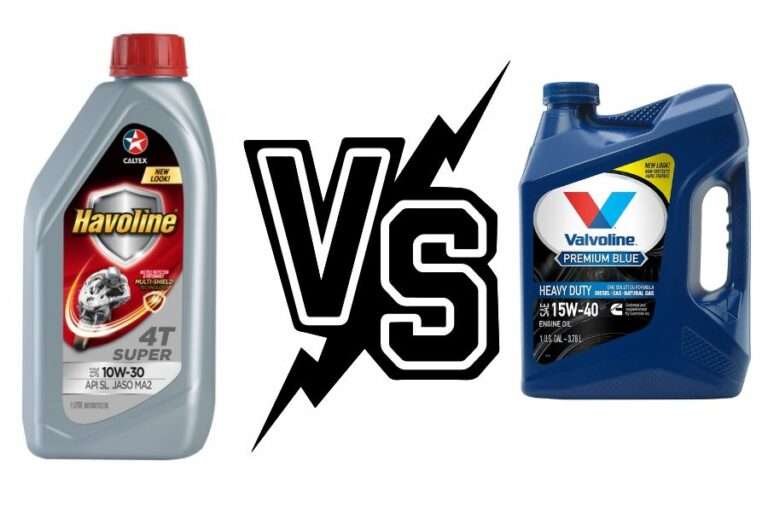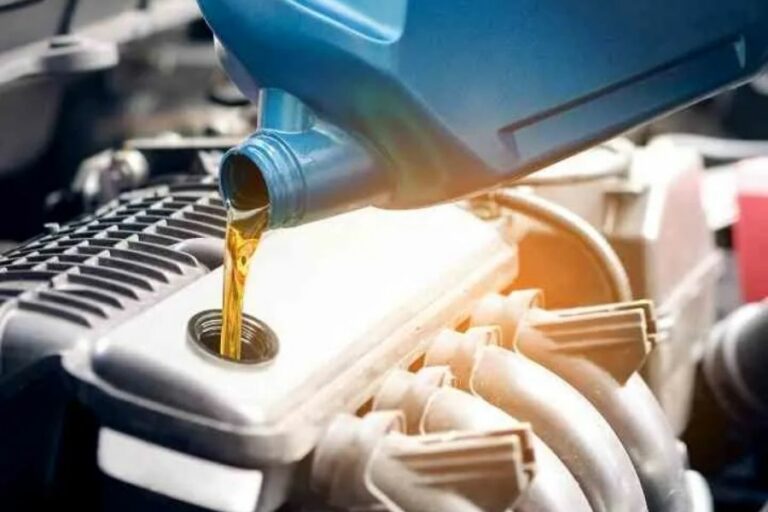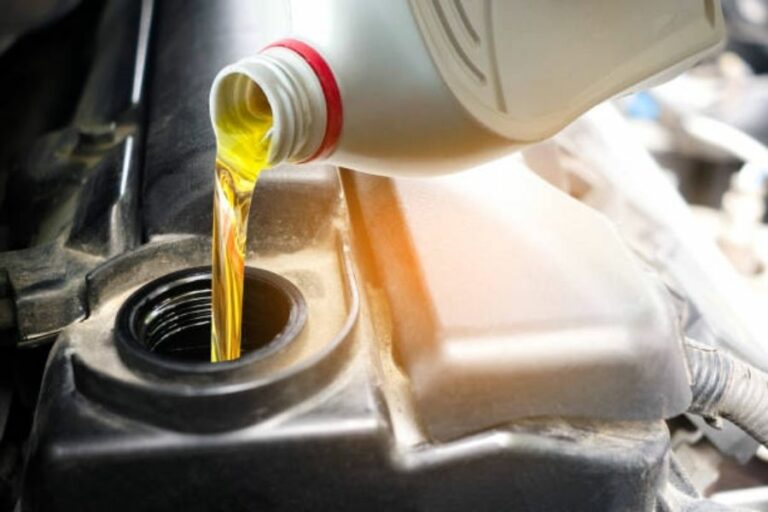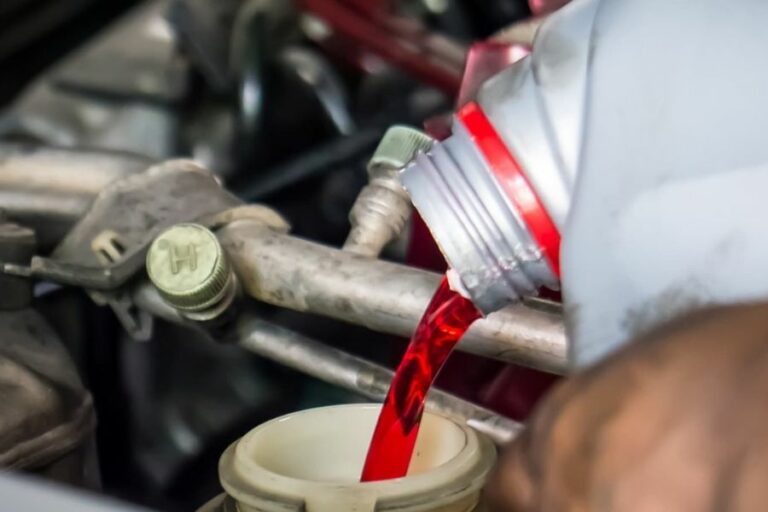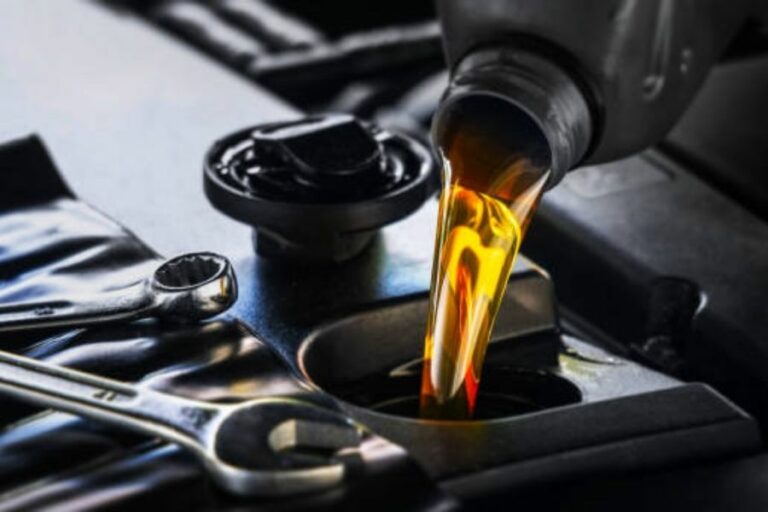Does Low Transmission Fluid Cause Jerking
Too low transmission fluid cause jerking in your car. If the level is low, it can’t lubricate the moving parts properly, and they’ll start to grind and wear out. The transmission will also overheat, which can damage it permanently.
If you’ve ever experienced your car jerking while driving, you know it’s not a fun feeling. But what causes this jerking sensation? One possible culprit is low transmission fluid.
Transmission fluid is what helps to keep your car’s transmission running smoothly. If there isn’t enough fluid, or if the fluid is dirty, it can cause all sorts of problems – including jerking. If you think low transmission fluid might be causing your car to jerk, the best thing to do is take it to a mechanic and have them check things out.
They’ll be able to tell for sure if that’s the problem and can help get your car back in good shape.
What Causes a Transmission to Jerk?
When your car’s transmission jerks, it’s usually because there’s a problem with the transmission fluid. If the fluid is low, it can cause the gears to slip and make the car jerk. Another reason for a jerky transmission is if the filter is dirty or clogged.
This can also cause the gears to slip and make the car jerk.
What are the Symptoms of Low Transmission Fluid?
If your car has an automatic transmission, then you rely on transmission fluid to keep the various components of the transmission system lubricated and cool. If the level of fluid gets too low, then it can lead to a number of problems. The most common symptom of low transmission fluid is a noticeable difference in how the car drives.
If you suddenly find that your car is slipping out of gear or hesitating before shifting gears, then it could be a sign that the level of fluid is getting low. Another common symptom is strange noises coming from the transmission area. If you start to hear grinding or whining sounds, then it’s a good indication that there isn’t enough fluid in the system.
If you notice any of these symptoms, then it’s important to check the level of fluid in your transmission as soon as possible. Allowing the problem to continue can cause serious damage to the components of your transmission and eventually lead to a complete failure.
Read More Automatic Transmission
What Causes My Car to Jerk While Accelerating?
If your car is jerking while accelerating, it could be caused by a few different things. One possibility is that your spark plugs are dirty or worn out and need to be replaced. Another possibility is that there is something wrong with your fuel injectors.
If they are clogged or not working properly, it can cause your car to jerk while accelerating. Finally, it could also be an issue with your transmission. If the gears are slipping or not engaging properly, it can cause your car to jerk while accelerating.
What Does Low Transmission Fluid Cause Jerking Feel Like?
If you’ve ever experienced your car’s transmission jerking, you know it’s not a pleasant feeling. Your car may feel like it’s struggling to shift gears or may even make a loud banging noise. Transmission jerking can be caused by a number of different things, so it’s important to diagnose the problem as soon as possible.
One common cause of transmission jerking is low transmission fluid levels. If your fluid levels are low, it can cause the gears to grind and slip, which will lead to a jerky ride. You can check your fluid levels by opening the hood and locating the dipstick.
If the fluid is low, add more until it reaches the full line on the dipstick. Another possible cause of transmission jerking is a dirty filter. A dirty filter can restrict oil flow and prevent proper lubrication of the moving parts in your transmission.
This can cause the gears to bind and jerk when shifting. You should have your filter replaced every 30,000 miles or so to prevent this issue. If you’re still experiencing transmission problems after checking and replenishing your fluids, it’s time to take it to a mechanic for further diagnosis.
Automatic Transmission Jerks When Slowing down
An automatic transmission that jerks when slowing down can be a sign of a serious problem. If your transmission is jerking when you try to slow down, it’s important to have it checked out by a qualified mechanic as soon as possible. There are several potential causes of this issue, and some of them can be very expensive to fix.
One possibility is that the transmission fluid is low. This is something that should be checked first, as it’s relatively easy and inexpensive to fix. If the fluid level is low, simply adding more fluid may solve the problem.
Another possibility is that there’s something wrong with the transmission itself. This could be anything from a simple adjustment that needs to be made, to a major repair such as replacing the transmission entirely. If this is the case, it’s important to get an estimate from a qualified mechanic before having any work done.
If your car’s transmission is jerking when you try to slow down, don’t ignore it! Get it checked out by a qualified professional as soon as possible so you can avoid costly repairs down the road.
Low Transmission Fluid Symptoms
If you notice any of the following low transmission fluid symptoms, it’s time to take your car to a mechanic for a diagnosis.
1. The car is shifting gears on its own.
2. The engine is revving up without the car moving forward.
3. There’s a burning smell coming from the car.
4. The transmission fluid is leaking from the car.
5. The check engine light is on.
1st to 2nd Gear Jerk Automatic Transmission
If you drive an automatic transmission car, you may have experienced a jerking sensation when the car shifts from first to second gear. This is commonly referred to as 1st to 2nd gear jerk. There are several reasons why this may occur.
The most common reason is that the transmission is low on fluid. If the transmission fluid is low, it can cause the gears to slip and produce a jerking sensation. Another possibility is that the transmission filter is dirty or clogged.
A dirty or clogged filter can restrict the flow of fluid and cause shifting problems. Finally, it’s possible that the clutch plates are worn out or damaged. If the clutch plates are not gripping properly, it can cause the gears to slip and produce a jerking sensation.
If you’re experiencing a 1st to 2nd gear jerk, check your transmission fluid level and replace the fluid if necessary. Clean or replace the transmission filter if it’s dirty or clogged.
How Do I Stop My Transmission from Jerking
If your transmission is jerking, it’s likely due to a problem with the torque converter. The torque converter is responsible for converting the engine’s rotational force into hydraulic pressure, which is then used to power the transmission. When there’s a problem with the torque converter, it can cause the transmission to jerk or hesitate.
There are a few things you can do to try and fix a jerky transmission:
1. Check the fluid level and quality. If the fluid is low or dirty, it could be causing problems.
2. Have the torque converter checked by a professional. There could be an issue with the internals that needs to be fixed.
3. Have the entire transmission system checked by a professional.
Why Does My Transmission Jerk When I Put It in Drive
If your transmission is jerking when you put it in drive, there are a few possible explanations. First, it could be that the transmission fluid is low. When transmission fluid gets low, it can cause the gears to slip, which will lead to a jerking sensation.
Another possibility is that the torque converter is going bad. The torque converter is what transfers power from the engine to the transmission, and if it’s not working properly, it can cause the transmission to jerk. Finally, there could be an issue with the shift solenoids.
Shift solenoids control the shifting of gears in an automatic transmission, and if they’re not working properly, they can cause the transmission to jerk as well. If your transmission is jerking when you put it in drive, take it to a mechanic and have them diagnose the problem so that you can get it fixed.
Why Does My Automatic Transmission Kick
If your automatic transmission is kicking, it could be due to a few different things. The most common cause is low fluid levels. If the fluid level is low, it can cause the transmission to slip and kick.
Another common cause of kicking is a dirty or clogged transmission filter. A dirty filter can restrict the flow of fluid, causing the transmission to slip and kick. Finally, worn or damaged transmission parts can also cause kicking.
If any of these parts are worn or damaged, they can cause the transmission to slip and kick. If you’re experiencing kicking, it’s best to have your vehicle inspected by a qualified technician to determine the root cause.
Car Jerks When Shifting from Park to Reverse
If your car jerks when shifting from park to reverse, it could be a sign of a transmission problem. Transmission issues can be caused by a variety of things, including low fluid levels, worn-out parts, or leaks. If you’re experiencing this issue, take your car to a mechanic to have it checked out.
Car Jerks After Transmission Fluid Change
If your car is jerking after you’ve changed the transmission fluid, it’s likely that there’s air in the system. When you change the fluid, you must bleed the air out of the system to get rid of the jerkiness. Here’s how to do it:
1. With the engine off, locate the bleeder screw on the transmission.
2. Open the bleeder screw and place a catch pan beneath it.
3. Start the engine and let it idle.
4. Slowly depress the clutch pedal until it reaches the floor and holds it there.
5. As fluid starts to flow from the bleeder screw, close the screw tightly. Continue depressing and holding the clutch pedal until fluid stops flowing from the bleeder screw (this may take several minutes).
Be sure to keep an eye on your catch pan so that it doesn’t overflow! If it does, simply open up the bleeder screw again to release pressure and then re-tighten it when the fluid stops flowing.
How to Fix a Jerky Transmission
Conclusion
If your car is jerking when you drive, it could be a sign that your transmission fluid is low. When transmission fluid gets low, it can cause the gears to slip and make the car jerk. If you think your transmission fluid might be low, check the level and add more if necessary.
